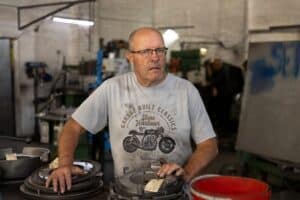Opposition parties are caught between a rock and a hard place trying to find weaknesses on which to tackle President Cyril Ramaphosa.

Opposition parties are caught between a rock and a hard place as they try to identify weaknesses to use as grounds on which to tackle President Cyril Ramaphosa as they formulate their strategies for the 2019 elections, political analysts have said.
Dr Somadoda Fikeni from Unisa said at the moment the parties were still testing the waters on the new president by raising issues on which they believe he might buckle to their pressure.
He said it became clear during yesterday’s debate on Ramaphosa’s maiden State of the Nation Address (Sona) that most of the opposition parties, including the Democratic Alliance and Economic Freedom Fighters, currently lacked proper ammunition with which to attack the new leader.
He said the opposition engagement of the country’s president would no longer be on substantive issues but “the focus will be on policy issues”.
Fikeni raised this as various political parties debated the Sona, which was presented by Ramaphosa on Friday after he was sworn in as South Africa’s fifth democratic president.
“To me I think that the debate revealed the opposition strategy for the 2019 elections because now they don’t have Jacob Zuma and his alleged corruption. The EFF is trying to find issues it could use against Ramaphosa around the Marikana massacre, his perceived friendliness towards corporates and the expropriation of land without compensation.
“The EFF is trying to get Cyril to reveal his strategy on how he is going to deal with these issues. But how are they going to attach Marikana to him when he has not been found guilty of anything in a court of law?” Fikeni said.
Professor Susan Booysen from the Wits School of Governance said with Ramaphosa now in power, the opposition was caught between a rock and a hard place.
“There is a bit of positive spirit towards Ramaphosa and the opposition could not go against that. They have to find their own identity as the opposition against positive flow and his different approach to governance. It’s not an easy space these parties find themselves in,” Booysen said.
The opposition have to balance the general mood in the country and general credibility that Ramaphosa enjoyed compared to Zuma and the need for the opposition to consolidate their position towards him as a blameless leader.
Political commentator and author Sizwe Mpofu-Walsh, who was agitated by the opposition’s initial failure to hold Ramaphosa accountable for the Marikana massacre issue at the Sona debate, praised EFF MP Delisile Ngwenya, who took on the president on this issue. He described the MP as “by far the best speaker today”.
Mpofu-Walsh, author of Democracy & Delusion – 10 Myths In South African Politics, lambasted Ramaphosa’s address.
“How do you talk about a ‘new dawn’ when you’ve been in government for well over two decades? Who is responsible for the ‘old night’?” he asked.
Fikeni said he noted the Democratic Alliance’s intention to drive a wedge between the ANC and the trade union movement.
DA leader Mmusi Maimane’s call for Ramaphosa to stop what he termed Sadtu’s “state capture”, was a strategic move by the official opposition to divide the ANC and Cosatu or the latter’s affiliates.
The DA was alluding to claims that Sadtu, a Cosatu-affiliated teachers’ union, was messing up education through the union’s alleged hijacking of processes, including hiring of teachers in all education departments in the country.
“The DA is trying to say that the unions are responsible for the lack of economic growth. To me this is not going to work at this stage because the DA itself is facing its own crisis in Cape Town over the failed plan to remove mayor Patricia de Lille,” Fikeni said.
//
For more news your way, follow The Citizen on Facebook and Twitter.
Support Local Journalism
Add The Citizen as a Preferred Source on Google and follow us on Google News to see more of our trusted reporting in Google News and Top Stories.






